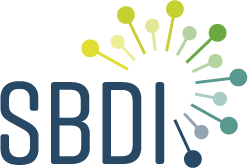Biodiversity and the private sector – GBIF Sweden’s engagement

GBIF Sweden is actively working to bridge the gap between biodiversity and the private sector by improving access to biodiversity data for businesses. Leveraging biodiversity data enables companies to make more sustainable decisions while also contributing to research and a deeper understanding of ecological systems by sharing their own data. This reciprocal exchange strengthens the foundation for both business sustainability and scientific progress, fostering more informed strategies for environmental stewardship. Two key initiatives currently driving this work are GBIF Sweden’s collaboration with Hyper Island and Knowit, as well as a recently submitted scientific article on biodiversity and business.
Hyper Island project: Connecting business with biodiversity data
In partnership with Knowit, GBIF Sweden is participating in a Hyper Island project where four students are exploring the question:
How can a partnership between Knowit and GBIF Sweden empower Nordic companies to make biodiversity data actionable and drive sustainable decision-making?
Running from January 9 to February 14, the project aims to develop communication strategies that demonstrate how Knowit’s clients in Scandinavia can utilize biodiversity data services developed by GBIF. A key objective is to support businesses in meeting their reporting obligations under the Corporate Sustainability Reporting Directive (CSRD) and, more specifically, the European Sustainability Reporting Standards (ESRS), particularly E4, which focuses on biodiversity and ecosystems.
Beyond using biodiversity data for their own sustainability efforts, businesses have an opportunity to contribute valuable data themselves. Sharing biodiversity-related insights—such as observations from environmental monitoring or ecosystem assessments—enhances the overall knowledge base, benefiting both industry and science. The more stakeholders contribute to biodiversity data, the more robust and actionable this resource becomes, ultimately supporting evidence-based decision-making at all levels.
Read more about this event here.
Business and biodiversity: Advancing data-driven sustainability
As part of its commitment to integrating biodiversity considerations into the private sector, GBIF Sweden has co-authored a scientific article titled:
“The Business Case for Investing in Biodiversity Data”, submitted to a special issue of Methods in Ecology and Evolution.
The paper outlines a framework and action plan for improving the mobilization, accessibility, and use of biodiversity data, ensuring that companies can effectively integrate ecological considerations into their decision-making processes. A key emphasis is placed on the dual role of businesses—not only as users of biodiversity data but also as data providers. By sharing their own biodiversity observations, companies strengthen both their sustainability strategies and the broader research landscape, fostering a data ecosystem that benefits conservation, policy, and economic development alike.
The preprint of the article is available here: https://doi.org/10.32942/X27W61.
Collaboration between businesses and the scientific community in biodiversity data has the potential to drive meaningful change—enabling smarter, more sustainable business models while also contributing to the long-term protection of natural ecosystems. By embracing both data-driven insights and open data sharing, companies can play a pivotal role in shaping a more sustainable future.




